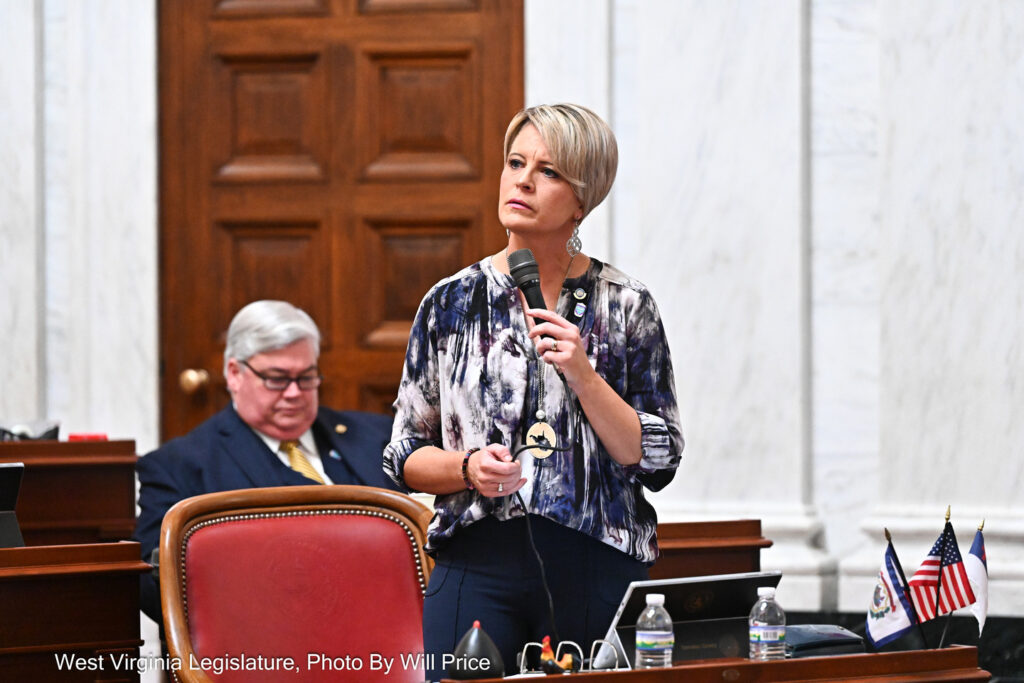The Senate passed a bill that would require public schools to show a video on the early stages of human development.
Senate Bill 468 is known as the Baby Olivia bill. It requires that public schools show a four minute video on human development to eighth graders and eleventh graders.
The bill had support across party lines. Then controversy surrounded the bill Monday evening when Sen. Amy Grady, R-Mason, offered an amendment.
Grady’s amendment added language that life begins at conception.
Sen. Charles Trump, R-Morgan, opposed the amendment because he said it could violate the establishment clause of the U.S. Constitution.
“Even though I agree with that,” Trump said, “I think it is an imposition of what is fundamentally a religious or spiritual belief. I don’t think it is a matter of proven or established science.”
The amendment barely made it out of the chamber, passing 18-15.
Sen. Tom Takubo, R-Kanawha, and a practicing doctor, said he was not going to vote for the bill because there is information in the video that is not medically accurate.
“The problem I have with it is there are inaccuracies in the video overall,” Takubo said.
He said that the bill that came out of the Rules Committee included compromises.
“One of the changes we made in the Rules Committee was to say that whatever video we teach your children, it has to be scientifically accurate. That was removed with the amendment yesterday,” Takubo said.
Senate President Craig Blair, R-Berkeley, stepped down from the dais to speak on the bill, a rare move. He said though he did vote against the amendment he would still vote for the bill.
“The world changes around us and I’m certain that the world’s going to change in the future,” Blair said. “The way the bill was constructed, until the amendment, allowed that flexibility. But we come back every year, this isn’t a big deal. I’m going to vote proudly for this.”
Tuesday, the bill was approved by the full Senate and heads to the House.




















